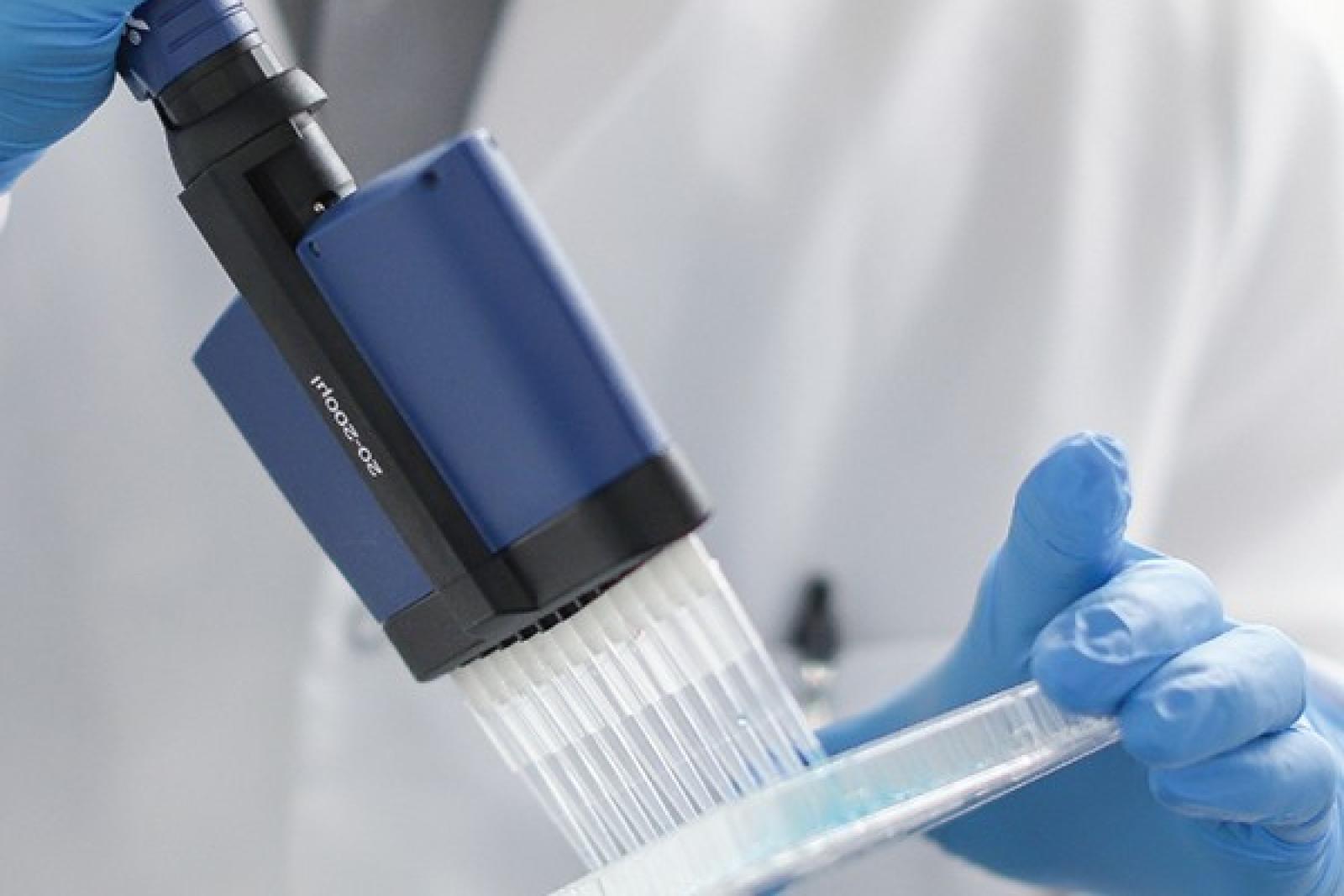PharmImpact - Spring 2022

Gifts from donors support students and faculty, fuel drug discovery
Alumna Maryann Kennedy, BPharm ’78, and her husband, Larry Kennedy, are two former pharmaceutical industry professionals and cancer survivors who know firsthand what pharmaceutical research can mean for a patient’s quality of life. Because of their experiences, they have created a legacy by giving back to The Ohio State University College of Pharmacy to support faculty and students advancing drug discovery.
After the College of Pharmacy recruited Blake Peterson, PhD, professor and Chair of the Division of Medicinal Chemistry and Pharmacognosy, in 2019, the Kennedys hosted an Ohio State football watch party to welcome and introduce him to Cleveland-area alumni. The Kennedys were impressed by the Peterson lab and started to discuss pharmaceutical research with Dr. Peterson and what type of support was needed to advance drug discovery at the college.
“Blake Peterson is a model of a well-rounded professor. He’s engaging, works with his entire research staff and has a great collaborative process. He’s the full package,” Maryann said. “In order to obtain that kind of talented research, you need support for these people.”
The couple have modeled this by donating to numerous causes in the college, including student scholarships and facility improvements, and have recently created an endowed professorship that will support another talented faculty member in the college’s Division of Medicinal Chemistry and Pharmacognosy.
“We looked at what an endowed professorship means in three ways,” Maryann said. “First, it gives students the ability to learn from and research alongside talented faculty. Second, endowed faculty positions are crucial to recruit and maintain great faculty. Finally, it’s hard to apply for government grants with early-stage science. Endowed positions provide support for start-up research. The endowed professorship gives Dr. Peterson another tool in his toolbox for training and recruitment that will help his research and the college.”
Dr. Peterson agrees that the endowed professorship will lead to positive advances in the college.
“I am very grateful for this generous endowment from Maryann and Larry Kennedy,” Dr. Peterson said. “It gives us the ability to help recruit and retain outstanding faculty that contribute to our focus on drug discovery. This year, we were fortunate to hire Dr. Jonathan Boyce from the University of California San Francisco as an assistant professor (joining us in early 2023), and I look forward to continuing to strengthen this area by adding other top-notch tenure-track faculty to our division.”
In addition to a professorship, renovations are also key to advancing drug discovery. The Kennedys have made gifts to assist the college in creating a PharmD compounding room, faculty office and a patient counseling room.
“You can’t do 21st century science in 20th century labs,” Maryann said. “A discipline like pharmacy needs labs, technology and facilities that must be upgraded over time. We knew jumping on the opportunity to fund renovations would create better research outcomes.”
Eli Lilly Fellowship provides full tuition to keep PhD students in the lab
For many PhD students, part-time jobs and teaching assistant (TA) positions are necessary to cover the cost of tuition and other expenses. Unfortunately, these extracurriculars limit the amount of time spent in the lab.
To ease the financial burden for PhD students and keep them working on their research, the pharmaceutical enterprise Eli Lilly and Company established the Eli Lilly Fellowship in 2008. The year-long fellowship covers the full cost of attendance for two full-time PhD students in the College of Pharmacy Division of Pharmaceutics and Pharmacology each year.
This year’s Fellows are Qinqin Fei and Trang Vu. Fei’s research includes developing a cell-specific, nanoparticle-based approach to delivering therapeutics to mitigate lung injury during acute respiratory distress syndrome (ARDS). Vu’s work investigates the relationships linking cancer cachexia (loss of body weight and muscle mass), immune checkpoint inhibitor (ICI) clearance and response to better understand natural resistance to ICI therapy.
“This fellowship allows me to complete my current research project over the next year by focusing my time fully on my dissertation research,” Fei said.
Working with Eli Lilly and Company also gives students a benefit outside of the monetary aspect. Through the fellowship, students can build connections with professionals in one of the largest pharmaceutical companies in the world. After completing their year of research, students can mention their Eli Lilly and Company research experience on their resumes and CVs, which can set them apart from other candidates in future jobs searches.
The fellowship concludes with the students presenting their research to scientists of Eli Lilly and Company. Before the COVID-19 pandemic, students would head to Eli Lilly and Company headquarters to present at an annual scientific symposium that is largely focused on Pharmacokinetics, Modelling and Simulation – currently, these presentations have been virtual. This offers the opportunity for students to engage with industrial scientists and develop a broader understanding of industrial research and development. It also allows Lilly scientists to engage with students and faculty on current teaching, training and research projects happening at the College of Pharmacy.